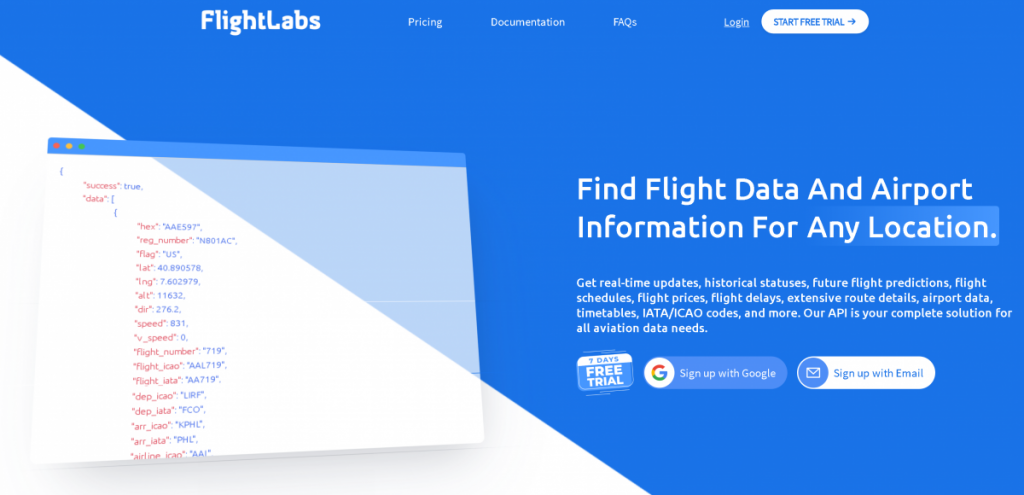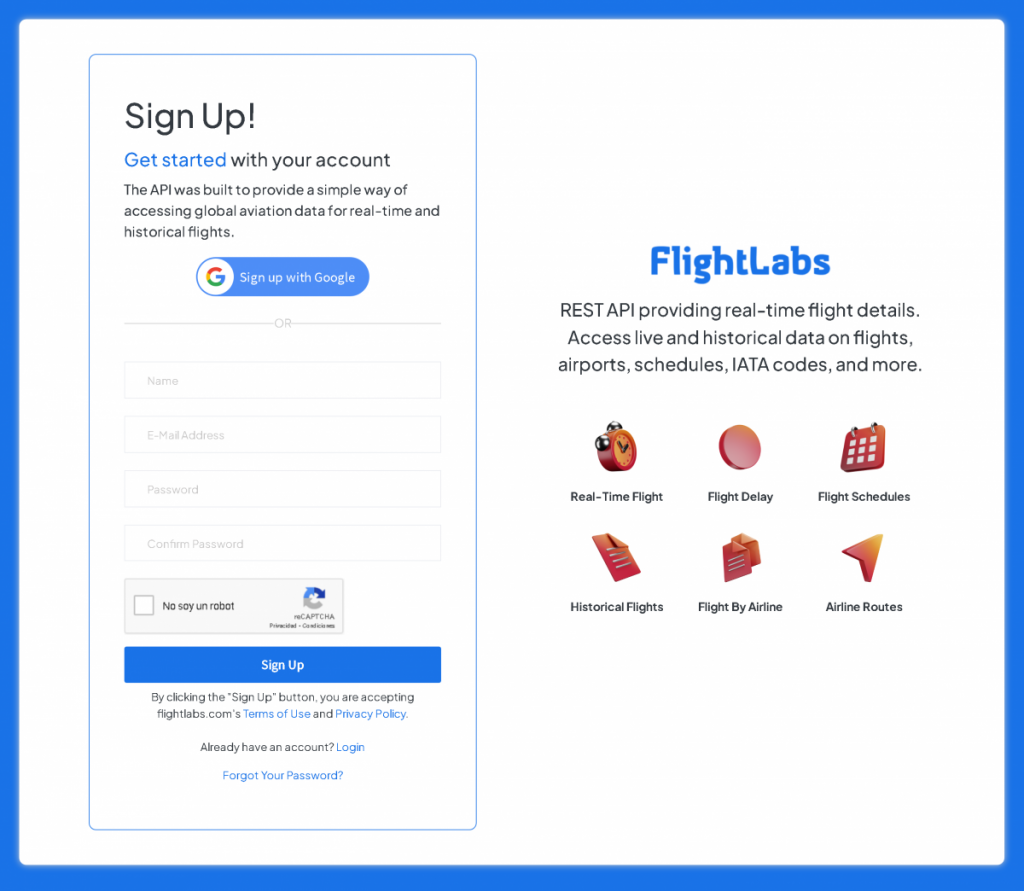The aviation industry generates a massive amount of data daily, from flight schedules to passenger numbers. Among this data, historical flight information holds a unique place of importance. This data is captured, stored, and made accessible through an Historical Flights API. These APIs provide developers and businesses with access to extensive flight data archives, enabling a wide range of applications.
Historical flight data is crucial for various reasons. It helps in analyzing trends, understanding patterns, and making informed decisions. Therefore, a plethora of solutions emerged to ensure simple and quick access to this information. In this article, we will tell you about FlightLabs, a solution that promises to change your access to Historical Flights data in the simplest way today.
How Historical Flights APIs Work
Historical Flights APIs operate through a sophisticated process of data collection, processing, and storage. This process ensures that the data is accurate, reliable, and easily accessible. The first step in this process is data collection. Airlines, airports, and aviation authorities continuously generate flight data. This data includes departure and arrival times, flight paths, delays, cancellations, and more. Historical Flights APIs aggregate this data from multiple sources, ensuring a comprehensive and reliable dataset.
Once the data is collected, it undergoes processing to ensure accuracy and consistency. This involves cleaning the data, removing duplicates, and standardizing formats. After processing, the data is stored in robust databases that are designed to handle large volumes of information. Developers can integrate Historical Flights APIs into their applications using various programming languages and tools.

Importance of Historical Flights APIs in Developer Projects
Historical Flights APIs play a pivotal role in enhancing the functionality and effectiveness of developer projects. They enable data-driven decision-making and offer unique capabilities that can set applications apart from the competition. By integrating Historical Flights APIs, developers can add valuable features to their applications. For instance, travel apps can provide users with historical flight data to help them make informed travel decisions.
Businesses use historical flight data to make strategic decisions. Airlines analyze this data to optimize flight schedules, improve on-time performance, and enhance operational efficiency. Travel agencies use it to offer personalized recommendations to customers. The ability to make data-driven decisions gives businesses a significant advantage in the competitive aviation industry. There are numerous examples of successful implementations of Historical Flights APIs. One notable case is a travel startup that used historical flight data to create a predictive model for flight delays. This model helped travelers avoid delays and make better travel plans, leading to increased customer satisfaction and business growth.
FlightLabs: The Premier Historical Flights API

Among the various Historical Flights APIs available, FlightLabs stands out as a premier provider. It offers a range of features and capabilities that make it an ideal choice for developers and businesses alike. FlightLabs provides comprehensive access to historical flight data, along with real-time flight information and scheduled flights data. Its API is design to be developer-friendly, with extensive documentation and support.
Key Features and Capabilities
Real-Time Flight Endpoint
The Real-Time Flight Endpoint provides up-to-the-minute information on flights worldwide. This includes departure and arrival times, flight statuses, and delays. This feature is crucial for applications that require real-time data to function effectively.
Historical Flights Endpoint
The Historical Flights Endpoint gives access to a vast archive of historical flight data. Developers can retrieve information on past flights, including schedules, delays, and cancellations. This data is essential for trend analysis and predictive modeling.
Advantages for Developers
FlightLabs offers several advantages for developers. Its API is easy to integrate, thanks to detailed documentation and code examples. The data provided is accurate and reliable, ensuring that applications built with FlightLabs perform well. Additionally, FlightLabs offers robust support, helping developers troubleshoot issues and optimize their implementations.
Getting Started with FlightLabs: Step-by-Step Tutorial
For developers looking to get started with FlightLabs, the process is straightforward. Here’s a step-by-step guide:
- Setting Up an Account: The first step is to set up an account on the FlightLabs website. This involves providing some basic information and agreeing to the terms of service. Once the account is set up, developers receive an API key, which is necessary for accessing the API

- Accessing the API Documentation: FlightLabs provides extensive documentation on its website. This includes information on the available endpoints, data formats, and integration examples. Developers should review this documentation to understand how to use the API effectively.
- Implementing the API in a Project: With the API key and documentation in hand, developers can start integrating the FlightLabs into their projects. This involves making API calls to the desired endpoints and processing the returned data. FlightLabs provides code examples in various programming languages, making it easier to get started.
https://www.youtube.com/watch?v=1pueN0P-UC8
Conclusion: The Impact of Historical Flights APIs on Development
Historical Flights APIs are transforming the way developers and businesses use flight data. They provide access to valuable historical information that can be use to enhance applications, make data-driven decisions, and gain a competitive edge.
FlightLabs is a leading provider of Historical Flights APIs, offering a range of features and capabilities that make it an ideal choice for developers and businesses. Its comprehensive data, easy integration, and robust support set it apart from the competition. As the demand for historical flight data continues to grow, FlightLabs is well-position to play a key role in the industry, helping organizations harness the power of flight data to drive innovation and success.
Related Post: Top API Marketplaces For Developers: A Comprehensive Guide

